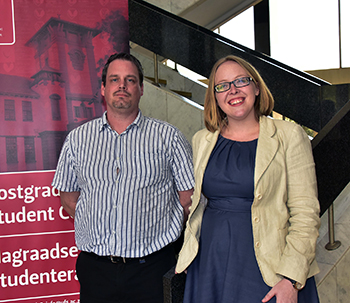Latest News Archive
Please select Category, Year, and then Month to display items
23 September 2020
|
Story Nitha Ramnath
|
Photo Supplied
 UFS students will be performing at the virtual ICDF on 24 September 2020.
UFS students will be performing at the virtual ICDF on 24 September 2020.
On 24 September 2020, South Africa will be celebrating Heritage Day. For the 25th anniversary of this celebration, South Africans are encouraged to celebrate their culture and the diversity of their beliefs and traditions in the wider context of a country that belongs to all its people. Dr Chitja Twala, Vice-Dean: Faculty of the Humanities at the UFS, says: “The importance of the day is that we must celebrate who we are and learn from each other.” The University of the Free
State (UFS) has a long tradition of commemorating Heritage Day and the ideas underpinning it. One way in which the UFS celebrates and recognises the tapestry of diverse cultures represented on its campuses is through its International Cultural Diversity
Festival hosted by the Office for International Affairs. The purpose of the event is to highlight on Heritage Day that international cultural diversity is a central tenet of the UFS community.
Pursuant to the tremendous challenges caused by the COVID-19 pandemic globally, the International Cultural Diversity Festival will this year be celebrated in a virtual format. Even during this uncertain time, it is important to find time to celebrate
our uniqueness and to appreciate one another’s heritage and culture in the spirit of our humanity.
Date: 24 September 2020
Time: 10:00
No registration is required!
For the 2020 Heritage Month celebrations, let us share elements about ourselves that make us proud of who we are! The diverse contributions to the 2020 virtual International Cultural Diversity Festival activities will highlight the university’s commitment towards creating a diverse, challenging intellectual environment. As a research-led university, the UFS strives to provide an environment in which new ideas are incubated and debated, contributing to its transformation process and African unity.
For more information contact Bulelwa Moikwatlhai on MaloB@ufs.ac.za
National 3MT competition held at UFS
2017-03-29

The two winners of the Three minute thesis
competition, Andrew Verrijdt (left) and
Kerryn Warren (right).
Photo: Charl Devenish
From Neanderthal hybrid children to eating corn silk as a way of managing kidney diseases, the National Three Minute Thesis competition (3MT) captivated the mind.
“We brought the competition to South Africa and hosted the local, regional, and national competitions for the past few years,” said Dr Emmie Smit, organiser of the event. It is an opportunity to raise the profile of postgraduate research and to develop a cross-disciplinary student community to effectively communicate research to a wide audience. The event was founded by the University of Queensland, Australia. The third national 3MT competition took place at the University of the Free State (UFS) on Friday 24 March 2017.
Three minutes and one slide
During the competition, participants had three minutes to explain their master’s or doctoral research and one static PowerPoint slide could be used. “It is very important that this slide works for you. There must be some way the information on the slide connects to what you present,” said Dr Henriette van den Berg, Director of the Postgraduate School at the UFS.
Winners grateful for opportunity
“It is an honour and a drive. It is very nice to have this sort of thumbs up,” said Kerryn Warren, winner of the Science category. Her research title was, What did a Human-Neanderthal Child Look Like? “I have been looking at the hybrids between different species and subspecies of mice in order to use them as a model to find out what human hybrids looked like.”
The presentation by Andrew Verrijdt, winner of the Humanities category, entitled Hiding in the Deep: Anonymous Websites for Paedophiles on the ‘Darknet’, gave a glimpse into the mysterious and dangerous realm of the dark web. “I am grateful for the opportunity. Primarily because I think it’s an important topic, and society will benefit by getting the word out there as it is a sensitive topic,” he said. The two winners, both from the University of the Cape Town, won R15 000 each. A further R30 000 of prize money went to the four runners-up.